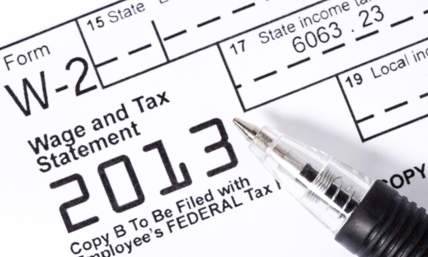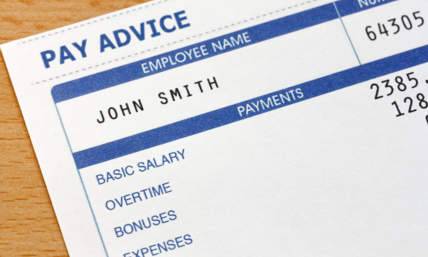What is Unearned Revenue - Is It a Liability?
Unearned revenue is defined as “money received by an individual or company for a service or product that has yet to be provided or delivered”. This essentially means that the client has paid you for your business whether this is a product or service and is described as the time between the client paying you the money and your business acting on the service delivery.
Businesses that require their clients to pay beforehand will always have unearned revenue because of this and this way of transacting is known as deferred revenue.
Since the payment has been made but no service or product has been delivered, the unearned revenue is considered to be a liability. This liability will then convert into an asset once the business has delivered its services or products.
In this guide, we’ll be taking you through everything you need to know about unearned revenue and what you need to bear in mind as a business owner.
Also read: Make Money While In College

What Industries Deal With Unearned Revenue?
There is a wide range of industries that often record unearned revenue, in particular the technology and insurance industries.
When it comes to technology, subscription-based software tends to be an example of unearned revenue as the client will pay for their subscription and will then await access to their software.
If you take out prepaid insurance then this is also an example of unearned revenue as the insurance company will be receiving your payment in advance of you receiving their services and benefits.
Also read: Is Debt Management Important?
Accrual or Cash Accounting
The first thing that all businesses need to ensure is that they are able to follow up on the services that they offer regardless of their niche. If a business cannot deliver on their services but is accepting and taking payments, this can get the business owner into all sorts of legal trouble.
The United States Securities and Exchange Commission, known as SEC, has laid out clear requirements that all businesses must adhere to when it comes to revenue recognition. This means ensuring that all types of revenue are clearly recorded, including unearned revenue, so that the total earnings of the business can be understood and consistent.
The introduction of Accounting Standards ASC 606 provides a uniform revenue recognition for businesses rather than making the forms specific to certain industries, which can get confusing, especially for new business owners.
Also read: Budget For A Small Business

Where Should You Record Any Unearned Revenue?
So, now that you know that you need to record your unearned revenue, it’s important to ensure that it is recorded correctly. As mentioned above, unearned revenue is classed as a short-term liability. This is because the payment has been made to the business by the client, but the business has not yet delivered its services.
Specifically, unearned revenue is defined as a short-term liability in the majority of cases as it will not remain a liability permanently as the business will eventually deliver the service it has been paid for. The unearned revenue recorded by most businesses is short-term as they will act on their services within a year of receiving the payment.
If a business has failed to deliver its services longer than a year after receiving the payment from the client, then the unearned revenue is classed as a long-term liability.
The reason unearned revenue is classed as a liability rather than an asset is that there is a risk that the business will not be able to perform its obligations and services. Therefore, until the services have been delivered, any unearned revenue must be considered a risk, even though the likelihood is that it will eventually be converted into an asset.
Also read: What Does A Controller Do?
How Unearned Revenue is Recognized
Recognizing unearned revenue means that the business has delivered its services to the customer and the revenue is no longer considered a liability and can now be classed as an asset. Once this is achieved, the business will need to record this appropriately following these steps:
-
Finding and reviewing the contract that is in place with the client or customer.
-
Identifying what the business is required to do should be laid out in the contract.
-
Determining how much to charge for the businesses and calculating a suitable amount.
-
Allocating the decided amount toward the obligation laid out in the contract.
-
Recognizing the total revenue once the business has fulfilled its obligations and services for the client.
Making sure that you follow these steps thoroughly and correctly will prevent any confusion and also ensure that all your reports are filed correctly with SEC and the IRS.
Failing to report your unearned revenue can cause a lot of legal issues, and you could potentially be fined, so make sure that you are as detailed and thorough as possible to prevent this from happening.
Also read: Pay Yourself When You Have An LLC
FAQ
Where is Unearned Revenue on The Balance Sheet?
When recording unearned revenue on your balance sheet, it should be listed under current liabilities. This is because the client is awaiting the business to carry out its service or deliver the product. Once this has been completed, the unearned revenue will then be converted into an asset.
Why Are Unearned Revenues Recorded as Liabilities?
Unearned revenues are classed as a liability because the service or product has not been delivered to the client yet. However, this will usually only be for the short term, after which the unearned revenue will then be recorded as an asset.
How Does Unearned Revenue Affect The Income Statement?
Unearned revenue should not be included on the income statement until the service or product has been delivered and completed. Once this is done, it will be transferred from unearned revenue into revenue and can be included on the income statement once the contract has been fulfilled.

Conclusion
In conclusion, unearned revenue is the amount of revenue that has been paid to the business by a client and the business has not carried out the service or delivered the product that they have been paid for. Because of this, unearned revenue is defined as a liability as it can cause issues, especially if this is not resolved over time.
However, when the business delivers the product or service, the liability status converts into an asset and can be recorded.
If you haven't got the most efficient way to produce pay stubs, then check out our pay stub maker today. So simple and convenient!















